Editorial in The Hindu
Personal liberty still eludes WikiLeaks founder and Editor-in-Chief Julian Assange, despite a ruling by a United Nations legal panel that has declared his confinement “arbitrary and illegal”. The ruling of the Working Group on Arbitrary Detention — the authoritative UN body that pronounces on illegal detentions based on binding and legal international instruments — has met with support, but not surprisingly, with a bitter backlash as well, notably from governments that have suffered incalculable damage from WikiLeaks’ relentless exposures. Sweden and Britain have rejected the panel’s findings outright, despite the fact that they are signatories to the International Covenant on Civil and Political Rights, the European Convention on Human Rights and the other treaties upon which the UN legal panel has based its recommendation. The same countries have in the past upheld rulings of the same panel on similar cases such as the ‘arbitrary detention’ of the Myanmar leader Aung San Suu Kyi and former Maldives President Mohamed Nasheed. The British Foreign Secretary, Philip Hammond, has called the ruling “ridiculous”, and dismissed the distinguished panel as comprising “lay people, not lawyers”. As for the Swedish Prosecutor’s Office, it has declared that the UN body’s opinion “has no formal impact on the ongoing investigation, according to Swedish law”. In other words, both countries argue that his confinement is not arbitrary but self-imposed, and he is at ‘liberty’ to step out, be arrested, and face the consequences.
The specific allegation of rape that Mr. Assange faces in Sweden must be seen in the larger international political context of his confinement. He has made it clear he is not fleeing Swedish justice, offering repeatedly to give evidence to the Swedish authorities, with the caveat that he be questioned at his refuge in London, either in person or by webcam. While he will have to prove his innocence, Mr. Assange is not being paranoid when he talks of his fear of extradition to the U.S.: Chelsea Manning, whose damning Iraq revelations were first carried on WikiLeaks, was held in a long pre-trial detention and convicted to 35 years of imprisonment. The U.S. Department of Justice has confirmed on more than one occasion that there is a pending prosecution and Grand Jury against him and WikiLeaks. Mr. Assange’s defence team argues that the Swedish police case is but a smokescreen for a larger political game plan centred on Washington, which is determined to root out whistle-blowers such as Mr. Assange, Edward Snowden and Chelsea Manning for exposing dirty state secrets. It was WikiLeaks that carried the shocking video evidence of the wholesale collateral murder by the U.S.-led forces of civilians in Iraq and Afghanistan, in addition to thousands of pages of evidence of other violations of sovereignty and international law. By defying the UN panel’s carefully considered recommendation that Mr. Assange be freed and awarded compensation, Britain and Sweden are damaging their own international standing. They must reverse their untenable stand and do what law and decency dictate by allowing Mr. Assange an opportunity to prove his innocence without fearing extradition to the United States.
'People will forgive you for being wrong, but they will never forgive you for being right - especially if events prove you right while proving them wrong.' Thomas Sowell
Search This Blog
Showing posts with label Snowden. Show all posts
Showing posts with label Snowden. Show all posts
Tuesday, 9 February 2016
Wednesday, 7 August 2013
The US frequently refuses extradition requests - On Obama's cancellation of summit with Putin and extradition
The US frequently refuses extradition requests where, unlike with Snowden, it involves serious crimes and there is an extradition treaty
BETA
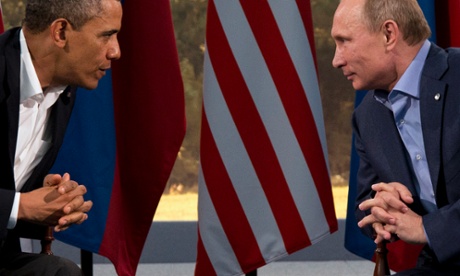
President Barack Obama today canceled a meeting with Russian President Vladimir Putin. Photograph: Evan Vucci/AP
President Obama today canceled a long-scheduled summit with Russian PresidentVladimir Putin in part because the US president is upset that Russia defied his personal directive to hand over Edward Snowden despite the lack of an extradition treaty between the two nations. That means that US media outlets will spend the next 24 hours or so channeling the government's views (excuse the redundancy) by denouncing the Russian evil of refusing extradition. When doing so, very few, if any, establishment media accounts will mention any of these cases:

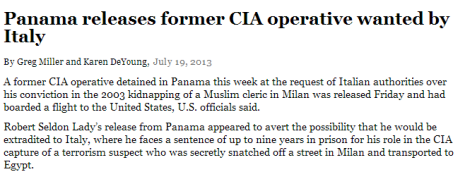

[US refuses Bolivia's request to extradite its former CIA-supported president, Gonzalo Sánchez de Lozada, to stand trial on charges of genocide and other war crimes after de Lozada hires Democratic lobbyists to represent him]
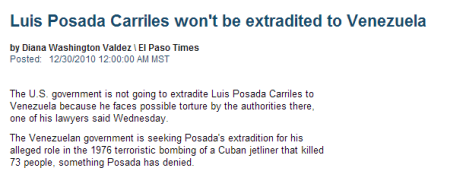
The US constantly refuses requests to extradite - even where (unlike Russia) they have an extradition treaty with the requesting country and even where (unlike Snowden) the request involves actual, serious crimes, such as genocide, kidnapping, and terrorism. Maybe those facts should be part of whatever media commentary there is on Putin's refusal to extradite Snowden and Obama's rather extreme reaction to it.
Other matters
Former Bush-era CIA and NSA director Michael Hayden appeared on CNN this week and confirmed that our reporting on the NSA's X-Keyscore program was accurate, telling the nation that we should all be grateful for those capabilities.
NYU journalism professor Jay Rosen has a superb essay on the behavior of the US media in NSA stories.
Foreign Policy CEO and Editor David Rothkopf becomes the latest establishment figure to recognize, as he puts it in a quite good column: "I have myself been too slow to recognize that the benefits we have derived from Snowden's revelations substantially outweigh the costs associated with the breach."
Wednesday, 10 July 2013
How can India give asylum to a person chased by the almighty US when it panics over giving a residence permit to a secular writer?
'I’m Not Surprised India Refused Snowden Asylum'
TASLIMA NASREEN
I came to India not as a rebel Bangladeshi writer, but as a European citizen. I eagerly chose India’s state of West Bengal as my new home. But when I was physically attacked by Muslim fundamentalists, instead of taking action against them, the government kept me under house arrest. Not only that, I was repeatedly asked to leave the state and, preferably, the country. When a group of Muslim fundamentalists organised a protest against my stay in India, I was thrown out of Bengal, the state that had been my home for years. Finally, the central government took charge and put me in a safehouse. But there was pressure from the Centre too for me to leave the country. Now, I am given permission to live in India, but only in Delhi. My enemies are just a handful of corrupt, illiterate, ignorant Muslim fundamentalists but yet India cannot challenge them.
TASLIMA NASREEN
Edward Snowden asked 21 nations for political asylum. He got nothing but rejection, proving once again that free speech is just a decorative item for most governments. India’s embassy in Moscow received Snowden’s request for asylum. His request was rejected within hours.
Since then, there has been much discussion about India’s generosity over giving shelter to persecuted people—and so then, why not Snowden? India has in the past granted political asylum to Dalai Lama and many other rebels. Some even mention my name in the list.
I am not sure whether I should be considered a political refugee in India. I was thrown out of my country, Bangladesh, in 1994 and found myself landing in Europe. It was difficult for me to live in a place which has a totally different climate and culture from where I grew up. Since I knew I couldn’t return to my country, I wanted to come to India. But India kept her doors firmly shut. Towards the end of 1999, I was given permission to visit as a tourist.
|
I’m not surprised India refused Snowden asylum. How can a country give asylum to a person chased by the almighty US when it panics over giving a residence permit to a secular writer? But with India, one understands; it can’t afford to take risks or make any big political mistake now. Indeed, a European country should have given Snowden asylum. They have a long tradition of defending writers and journalists. Compared to India, they have a much older, truer democracies, and violation of rights and free speech is a rarity there. It’s time for Europe to show they are not mere colonies of the US. However glorious a past India may have had, it doesn’t have the courage to face possible US sanctions. If democracy were practised everywhere, and if it were not reduced to mere elections, independent voices from independent countries would have been respected. As it stands, the human species is yet to make the world an evenly civilised place. We ordinary people pay the brunt, we sacrifice our dignity, honor, rights and freedom. I really feel sorry for Snowden. If I were a country, I’d have given him asylum.
Bangladesh-born Taslima Nasrin is the author of Lajja and other novels; E-mail your columnist: letters AT outlookindia.com
Wednesday, 3 July 2013
NSA spying revelations: why so many are keen to play down the debate
The mass surveillance that Edward Snowden has exposed asks questions not only of government but of telecoms companies too
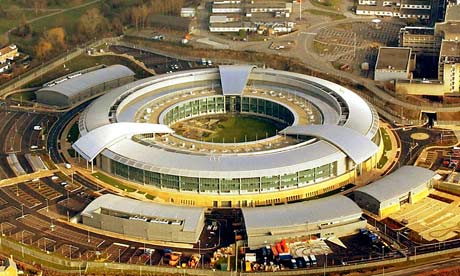
GCHQ reportedly snooped on foreign politicians attending two G20 summit meetings in London in 2009. Photograph: Barry Batchelor/PA
Covering the Edward Snowden story has not been straightforward for many in the mainstream media, which is reflected in the disjointed coverage it has received in the UK so far. For the newspapers that campaigned so hard to get the communications data bill thrown out because of the implications for privacy, he should be a hero. But then the brash young American "stole" the material, came to the Guardian with it, and has ended up stranded in Russia, where he may or may not receive asylum with the help of Julian Assange. All of which makes him rather unpalatable to many in Fleet Street – and indeed the House of Commons. For many of them, the easier story to tell was the one about Snowden's girlfriend, who was left bereft in Hawaii.
This week there have been more revelations about the way the US spied on the EU, which followed the Guardian's disclosures about how the British snooped on diplomats from Turkey and South Africa, among others, at the G20 summit in London four years ago. This has caused genuine fury among those targeted, particularly the Germans and the French. But their anger has been met with shoulder-shrugging indignation from former British diplomats and security experts, who say this sort of thing happens all the time.
They would hardly say anything different. In all likelihood, they have either authorised or benefited from such covert intelligence gathering, so the lack of biting analysis was entirely predictable. For those in the media unsure how to deal with Snowden, and rather hoping the complex saga would go away, this was another easy escape route: "No story here, let's move on."
But there is a story. It gets lost, all too conveniently, in the diplomatic rows and the character-assassinations, but ultimately it is the legacy of the Snowden files. The documents have shown that intelligence agencies in the UK and the US are harvesting vast amounts of information about millions of people. This is fact, not fantasy. They are doing this right now, on a scale that could not have been envisaged five years ago, let alone when the laws covering the collection and retention of data were drafted. They are also sharing this treasure trove of intelligence with each other, and other close allies.
In the UK, the same ministers who sign off operations to spy on our allies, are also approving countless warrants to allow GCHQ to siphon off data from cables that carry internet traffic in and out of the country. Emails, conversations on Skype, the details of phone calls – they all go into the intelligence pot ready for analysis and digestion.
The methods that GCHQ has developed may be ingenious. But are they right? Do the laws really legitimise this activity? And can the handful of MPs and commissioners tasked with the scrutinising the agencies really keep on top of all this? Do they have the staff, the expertise? Those are the questions that need proper argument. The reassurances of senior cabinet ministers, such as William Hague, who is responsible for GCHQ, needed to be tested, not just repeated unchallenged.
Those who wail about the leaks affecting national security might consider the words of Bruce Schneier, a security specialist, who wrote in the New York Times: "The argument that exposing these documents helps the terrorists doesn't even pass the laugh test; there's nothing here that changes anything any potential terrorist would do or not do."
And where are the telecoms companies in all this, and the internet service providers? For now, they are still keeping quiet. But at some point they will be asked to explain to their millions of customers what they knew about this industrial-scale snooping. None of this is easy, and ministers and intelligence officials would like nothing more than to shut down the debate. The clues are in their discomfort.
Monday, 10 June 2013
NSA whistleblower Edward Snowden: 'I do not expect to see home again'
Source for the Guardian's NSA files on why he carried out the biggest intelligence leak in a generation – and what comes next
Edward Snowden was interviewed over several days in Hong Kong by Glenn Greenwald and Ewen MacAskill.
Q: Why did you decide to become a whistleblower?
A: "The NSA has built an infrastructure that allows it to intercept almost everything. With this capability, the vast majority of human communications are automatically ingested without targeting. If I wanted to see your emails or your wife's phone, all I have to do is use intercepts. I can get your emails, passwords, phone records, credit cards.
"I don't want to live in a society that does these sort of things … I do not want to live in a world where everything I do and say is recorded. That is not something I am willing to support or live under."
Q: But isn't there a need for surveillance to try to reduce the chances of terrorist attacks such as Boston?
A: "We have to decide why terrorism is a new threat. There has always been terrorism. Boston was a criminal act. It was not about surveillance but good, old-fashioned police work. The police are very good at what they do."
Q: Do you see yourself as another Bradley Manning?
A: "Manning was a classic whistleblower. He was inspired by the public good."
Q: Do you think what you have done is a crime?
A: "We have seen enough criminality on the part of government. It is hypocritical to make this allegation against me. They have narrowed the public sphere of influence."
Q: What do you think is going to happen to you?
A: "Nothing good."
Q: Why Hong Kong?
A: "I think it is really tragic that an American has to move to a place that has a reputation for less freedom. Still, Hong Kong has a reputation for freedom in spite of the People's Republic of China. It has a strong tradition of free speech."
Q: What do the leaked documents reveal?
A: "That the NSA routinely lies in response to congressional inquiries about the scope of surveillance in America. I believe that when [senator Ron] Wyden and [senator Mark] Udall asked about the scale of this, they [the NSA] said it did not have the tools to provide an answer. We do have the tools and I have maps showing where people have been scrutinised most. We collect more digital communications from America than we do from the Russians."
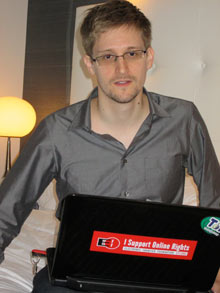 Snowden is a 29-year-old former technical assistant for the CIA
Snowden is a 29-year-old former technical assistant for the CIA
Q: What about the Obama administration's protests about hacking by China?
A: "We hack everyone everywhere. We like to make a distinction between us and the others. But we are in almost every country in the world. We are not at war with these countries."
Q: Is it possible to put security in place to protect against state surveillance?
A: "You are not even aware of what is possible. The extent of their capabilities is horrifying. We can plant bugs in machines. Once you go on the network, I can identify your machine. You will never be safe whatever protections you put in place."
Q: Does your family know you are planning this?
A: "No. My family does not know what is happening … My primary fear is that they will come after my family, my friends, my partner. Anyone I have a relationship with …
I will have to live with that for the rest of my life. I am not going to be able to communicate with them. They [the authorities] will act aggressively against anyone who has known me. That keeps me up at night."
Q: When did you decide to leak the documents?
A: "You see things that may be disturbing. When you see everything you realise that some of these things are abusive. The awareness of wrong-doing builds up. There was not one morning when I woke up [and decided this is it]. It was a natural process.
"A lot of people in 2008 voted for Obama. I did not vote for him. I voted for a third party. But I believed in Obama's promises. I was going to disclose it [but waited because of his election]. He continued with the policies of his predecessor."
Q: What is your reaction to Obama denouncing the leaks on Friday while welcoming a debate on the balance between security and openness?
A: "My immediate reaction was he was having difficulty in defending it himself. He was trying to defend the unjustifiable and he knew it."
Q: What about the response in general to the disclosures?
A: "I have been surprised and pleased to see the public has reacted so strongly in defence of these rights that are being suppressed in the name of security. It is not like Occupy Wall Street but there is a grassroots movement to take to the streets on July 4 in defence of the Fourth Amendment called Restore The Fourth Amendment and it grew out of Reddit. The response over the internet has been huge and supportive."
Q: Washington-based foreign affairs analyst Steve Clemons said he overheard at the capital's Dulles airport four men discussing an intelligence conference they had just attended. Speaking about the leaks, one of them said, according to Clemons, that both the reporter and leaker should be "disappeared". How do you feel about that?
A: "Someone responding to the story said 'real spies do not speak like that'. Well, I am a spy and that is how they talk. Whenever we had a debate in the office on how to handle crimes, they do not defend due process – they defend decisive action. They say it is better to kick someone out of a plane than let these people have a day in court. It is an authoritarian mindset in general."
Q: Do you have a plan in place?
A: "The only thing I can do is sit here and hope the Hong Kong government does not deport me … My predisposition is to seek asylum in a country with shared values. The nation that most encompasses this is Iceland. They stood up for people over internet freedom. I have no idea what my future is going to be.
"They could put out an Interpol note. But I don't think I have committed a crime outside the domain of the US. I think it will be clearly shown to be political in nature."
Q: Do you think you are probably going to end up in prison?
A: "I could not do this without accepting the risk of prison. You can't come up against the world's most powerful intelligence agencies and not accept the risk. If they want to get you, over time they will."
Q: How to you feel now, almost a week after the first leak?
A: "I think the sense of outrage that has been expressed is justified. It has given me hope that, no matter what happens to me, the outcome will be positive for America. I do not expect to see home again, though that is what I want."
Subscribe to:
Comments (Atom)

